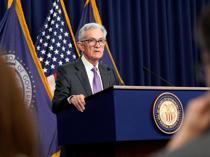UK debt-cutting slower than expected, finance chief says
LONDON

A building site in Central London is seen above. Britain’s economy grew by 1 percent in the third quarter, more than expected, bringing the recession to an end. EPA photo
Britain’s Treasury chief acknowledged yesterday the economy is taking longer than expected to recover from the financial crisis, but insisted he will not waver from his policy of tax hikes and spending cuts.George Osborne said the British government might miss its self-imposed goals of cutting debt as a share of national income by 2015/16 and of balancing the current budget, according to yesterday’s The Associated Press report.
Osborne said he would introduce new tax measures for the rich on Dec. 5, along with further moves to trim welfare spending.
The Conservative-led government is cutting 50 billion pounds ($80 billion) in spending through 2015 in a bid to slash the national debt, which stands at more than 1 trillion pounds ($1.6 trillion).
Concerns over growth
But critics have said the government’s austerity policy has failed to kick-start the economy, which has been through two periods of recession since 2008.
“It is clearly taking longer to deal with Britain’s debts, it’s clearly taking longer to recover from the financial crisis than one would have hoped, but we have made real progress,” Osborne told BBC television.
But he insisted that any change of course now “would be a complete disaster.”
“Undermining the credibility of our deficit plan, going back on our commitment to deal with our debts, would be a complete catastrophe for Britain,” he said. “(That) would put us into the place where some European countries are at the moment and that is not a place where Britain wants to be.”
Ahead of Osborne’s semi-annual statement, the Office for Budget Responsibility will announce financial figures, expected to show higher borrowing and lower growth than previous estimates.
Vicky Redwood, an economist at Capital Economics, said those figures will force Osborne “to choose between introducing even more austerity in the autumn statement and letting at least one of his fiscal rules slide.”
Meanwhile, Britain’s government should not reduce the amount workers can pay tax-free into their pension because it would deter future generations from saving for their retirement, a UK pension trade body said on Dec. 1.
‘Leave pension tax alone’
The National Association of Pension Funds (NAPF) has warned British Osborne to leave pension tax alone ahead of his Autumn Statement next week, which outlines the government’s plans for the economy, Reuters has reported.
Workers can currently pay up to 50,000 pounds a year into their pension pots before it is taxed, but the NAPF believes the government wants to cut this back to 30,000 pounds a year.
















